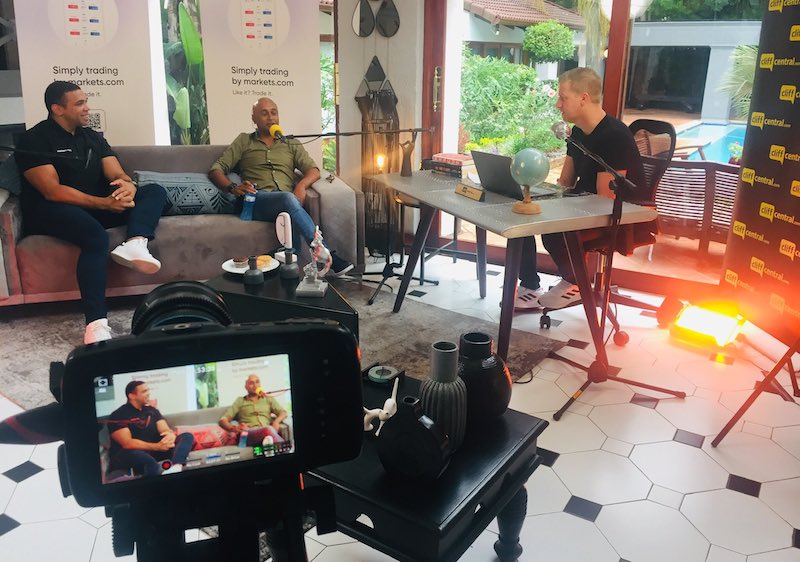The Economy of words
Julius Malema gave a “lecture” at the University of Fort Hare to a mixed reception this week. The record got stuck in two places – his old bugbear of Economic freedom and greed-driven intra-party power struggles. Whereas he used, occasionally, to pepper his rhetoric with a few entertaining stabs at whites, Thabo Mbeki or the media, I have to say Im bored with him now. Even Blade Nzimande made a better meal of things in the weekend papers. I suppose that’s how you know you’ve been devalued as a brand. Poor Julius – out of hospital and into a university, just like a cadaver.
Are you really interested in the internal machinations of the ANC at the moment? I’m not. Normally I would be, but the personalities this time round aren’t as much fun. That, and the fact that position-jockeying belies the real reason most members of the NEC are in politics – they couldn’t get real jobs if they wanted to. Which brings me to the economy:
Julius keeps saying that the economy is in white hands and that blacks haven’t got a chance. That’s not untrue, but it also isn’t that simple. Economics are different to science and maths, they’re prone to all kinds of influences and effects that boggle even the most learned of economists. Juju also keeps talking in bold, sweeping statements about nationalization and job-creation. Governments only create a bigger tax burden when they ‘create’ jobs and nationalization is a cock-up for a plethora of reasons that economists will elucidate far better than I can. In fact that very point would be terribly well-received if Julius made it: That the experts are the ones to ask, in a stagnant economy with a USA looming on the edge of recession and an EU looking face-down into the loo, what the right course to chart might be. even China is growing by far less than the projected statistics. Now is hardly the time for wild speculation by a man without even a cardboard MBA from Limpopo. I don’t know the answers, but neither does he. Someone who knows, please lead the way…
On my radio show I play a clip (mostly ironically) in which Julius shouts: “We are fighting for the wealth!”. This is the whole problem. Julius sees wealth as something solid and tangible that can be fought for, like land, trinkets or cash. Real wealth is value. Wealthy people own a lot of course, but most of their wealth is in value: ideas, shares, investments and in working companies. The reason those people are wealthy is (mostly) because they have worked hard, been really clever or been really inventive. If you make an iPad, you’re making something of value for the person purchasing it, and that’s why they give you the money. You can’t fight for those things, Julius.
I don’t believe most people want jobs. Most people who have them hate their jobs. Most people just want money. The problem is that money doesn’t like people, money likes money. I know this is starting to get weird, but bear with me. It takes a long time to grow a big enough heap of money to attract even more. It’s the opposite of diffusion in physics. The rich get richer, the poor get poorer. It would be a ghastly politically-incorrect theory to propose, but we all accept it as more or less true, if unfair. Most of us have trouble holding on to the little we have and struggle to make ends meet, let alone build value and wealth. It is the genesis of that wealth that is remarkable, and it is remarkable because it happens for very few people, only a few times. There is no general theory for how you can create wealth, under any circumstances. To economists, most of this is elemental, but to the average person it’s very difficult to comprehend, through clouds of avarice and ignorance, how the really rich amass their wealth. For this we can blame the politicians. They have promised the poor jobs and houses. The poor hold them to that promise and believe it will be the end of their woes. It won’t. Having a job is different from earning a job and getting a house is different from paying for or building your own house. The latter examples have to do with value, the former with things.
Politicians don’t really have much to offer, except for a few encouraging words and some hefty promises. They bring no real value. What does a politician have to give that you would pay for? Right. Nothing. The only way a politician can earn any money is by taking it, in tax, from you, by threatening to clap you in irons if you don’t hand it over. So the people who have no understanding of value are the ones who win the popularity contests and make the rules. That’s not sustainable. As for Julius, he’s fighting all right, but he won’t get the wealth of the wealthy, he’ll just disappoint the poor.




3 Comments
Hi admin,
Nice post. Thanks for giving information about the economy of word.
Good post.keep up the good work .for more latest economy news,
latest economy news
Why you need poll and Which is the best polling system?
One of the best public polling system is Leaderpoll which surveying a lot of social media users. It’s mission is to create content driven polls while engaging the public to help find the opinion of the people.